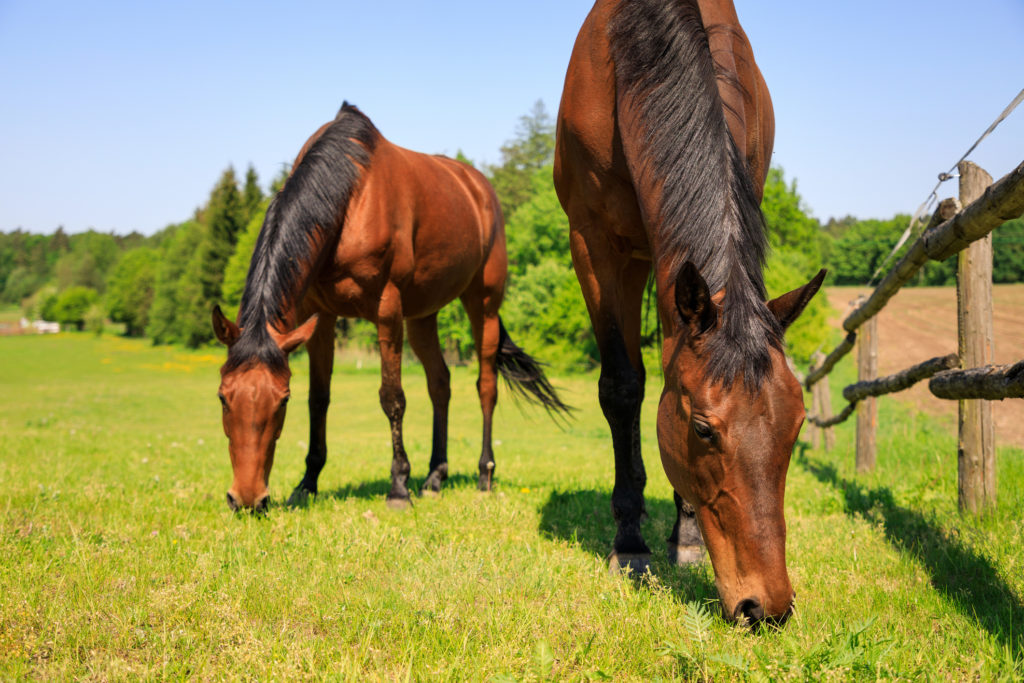Joint Supplements as Preventative Medicine
In the past several years there has been an explosion of supplements marketed as protecting and maintaining joint health.
In the past several years there has been an explosion of supplements marketed as protecting and maintaining joint health.
It probably comes as no surprise that a horse taking on the rigors of a 100-mile endurance race or a three-day event might need a different diet from one that ambles the trails around home or carries a child through the occasional weekend show. The
Arthritis is a problem, but often a manageable one. A combination of management practices, which might include oral joint supplements, will be your best chance of making your horse more comfortable.
SmartPak Equine announced May 23 that it has received a 2005 Innovation Award from the Smaller Business Association of New England. SmartPak, best known for offering custom-packed nutritional supplements in its patented SmartPak packaging, is th
Cosequin has previously been shown to improve lameness grade in horses with radiographic evidence of joint cartilage damage, and studies have explored possible mechanisms of action for FCHG49 glucosamine hydrochloride and TRH122 low molecular weight
When you think of insulin, you might think first of humans and diabetes. But horses have insulin, too …
The United States Equestrian Federation (USEF) is pleased to name one of the world’s foremost equine nutrition specialists as the Federation’s Official Equine Nutritionist. Kentucky Equine Research (KER), based in Versailles, Ky., boasts more
The Animal Supplement Council (NASC) has initiated a Quality Seal Program as part of its ongoing effort to improve and standardize the animal supplement industry . The seal is a way for consumers to know that when they buy a
Some horses present special challenges, such as being too thin, too fat, or sick. Some horses are finicky and are hard to keep weight on, especially when working.
When feeding horses, two seemingly opposing aspects hold true: It’s a little bit of art, and a little bit of science. On one hand, tradition reigns supreme when it comes to horse feeding. Many techniques have been passed down from generation to
The options and opinions on what to feed your horse are numerous. My goal in this article is to review the differences between the simple-stomached creatures (such as ourselves, dogs, cats, etc.) and the horse. In addition, we will take a look”P>The options and opinions on what to feed your horse are numerous. My goal in this article is to review the diff
In the first of a new series of nutritional talks sponsored by Buckeye Nutrition, 30 veterinarians from Lexington, Ky., and surrounding areas attended a dinner and a presentation on Feb. 11. Kent Thompson, PhD, Buckeye Nutrition’s Director of

Antioxidants (which include vitamins E, C, and A, selenium, glutathione, lipoic acid, coenzyme Q10, and isoflavins) act to stabilize free radicals and halt oxidative damage. Here’s a look at how they function.

Could feeding antioxidants to your horse help him through a performance problem? Antioxidants, whether found in the diet or supplemented, could potentially help exercising horses experiencing oxidative stress, one nutritionist says.
“Anytime you ask a horse to be a performance horse (taking him out of his natural environment), you put him in a stressful situation,” said Joe Pagan, PhD, owner of Kentucky Equine Research (KER) in Versailles, Ky., during his presentation
Marketing claims regarding the virtues of fat in equine diets are plentiful. Statements such as “Added dietary fat for improved performance,” “Increased stamina,” “Calm energy,” or “Improved coat and hoof condition” abound. Indeed, at times it i
Stay on top of the most recent Horse Health news with
"*" indicates required fields